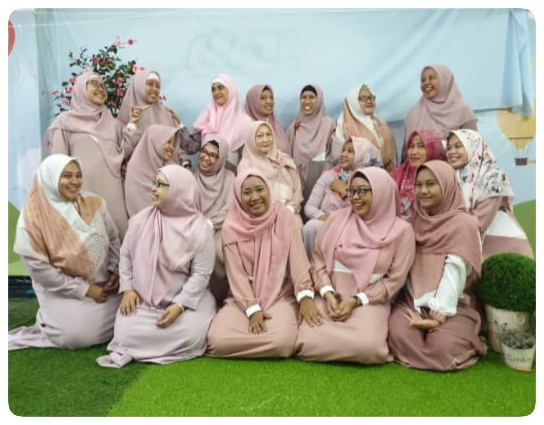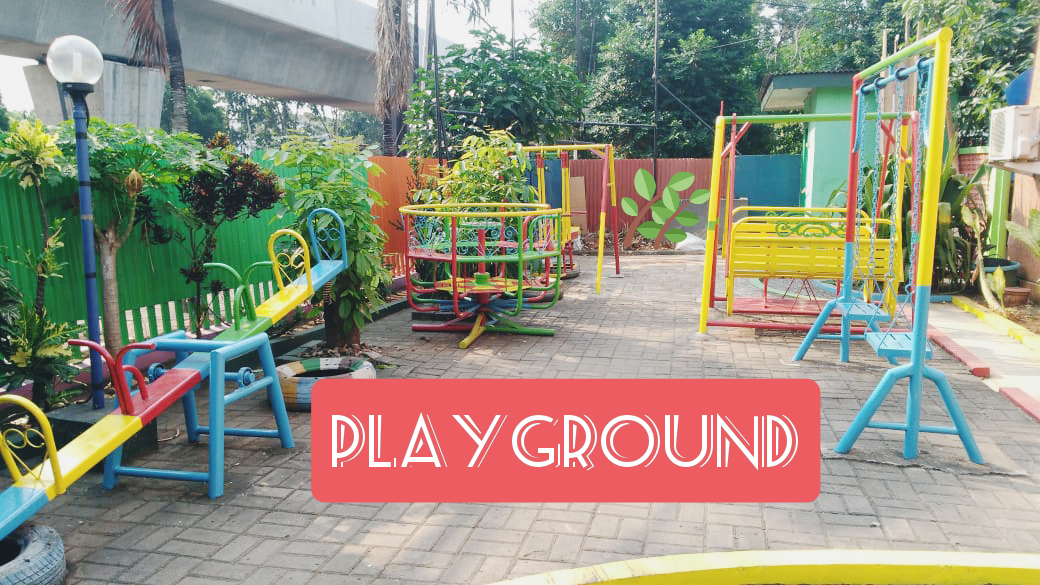The first 5 years in a child’s life play an important role to build a solid foundation for our child’s future because, during these years, the development proceeds at a pace exceeding that of any other phase of life. It is during this time where the brain of a child reaches its dramatic growth and the child’s cognitive development capacity grows rapidly. Thus it is our job as adults to make sure what happens in those 5 first years really takes into account in shaping our child’s future.
Our program is aimed at 1 year (walker) to 6 years old children and designed to provide a solid foundation in the first 5 years of their life and develop children emotionally, socially, physically, cognitively, and spiritually.
“Education is the passport to the future, for tomorrow belongs to those who prepare for it today.”
Malcolm X (1925 – 1965)
Our Curriculum
Our curriculum is developed with an understanding that every child is unique and varies physically, socially, and intellectually due to his/her age as well as experiences. We combine some meaningful and real-life related subject areas into one unit of study in a form of a weekly theme. By using a theme as a unit of study, we help to motivate children to learn to investigate interesting ideas that come from their real-life from different perspectives.
Below are some of the subjects taught in our school.
Social and Emotional
We help the children to be able to interact well not only with other children but also with adults. The children learn how to share, cooperate, and follow rules. We also encourage the children to be independent and able to express themselves positively.
Self-esteem is the real magic wand that can form a child’s future. A child’s self-esteem affects every area of her existence, from friends she chooses, to how well she does academically in school, to what kind of job she gets…
STEPHANIE MARTSON, The Magic of Encouragement
Physical
We vary our activities to make sure that the children practice both their large and fine motor skills. Activities like sliding and swimming provide opportunities for the children to practice their large motor whereas activities like scribbling, cutting, and threading practice their fine motor.
Language
“Learning a foreign language not only reveals how other societies think and feel, what they have experienced and value, and how they express themselves, it also provides a cultural mirror in which we can more clearly see our own society.”
Chancellor Edward Lee Gorsuch, chancellor of the University of Alaska
Knowing English has become a universal language people speak, we use English as our teaching media to make sure the children are exposed to the language as early as possible.
In ABATA, the four language skills; listening, speaking, reading, and writing. are not taught separately. They are all interrelated and implemented through day-to-day activities. When a teacher introduces a song related to a particular theme, the children practice their listening and speaking skill at the same time. The children can listen to the story read by the teacher and later are encouraged to share opinions or write stories for their drawings
In teaching reading, we use the phonetic approach as the method. The children are taught to recognize each letter and its sound. When the children are able to recognize the sound of each letter, then we teach them to blend the sound of letters to enable them to read 3-letter words, 4 letter words, and the more complex ones. By using this approach, children not only can read words by themselves but also can write words by writing the sounds they have learned before.
Mathematics
Our math program emphasizes understanding the math concept instead of rote memory. Children manipulate real objects and learn through hands-on in different interesting and meaningful activities. When the children do the calendar in the morning, the children learn about numbers and also after and before concept. The children play games where they have to find a friend’s shoe, they learn about matching one on one.
The math concept taught includes one to one correspondence, number concept and recognition, rote counting, shapes, patterning, sorting and grouping, addition and subtraction, measurement, multiplication and division concept, and time and money concept.
All the math concepts are taught in sequences, which means children learn from the simple ones to the more challenging ones.
The essence of mathematics is not to make simple things complicated, but to make complicated things simple. ~S. Gudder
Science
Our science activity focuses on helping the children to understand the world around them. Through science, children learn about so many things like exploring, observing, predicting, and also cause and effect. It is also through science activity that children learn to be patient and share as well as learn to share their opinion about the process of the experiment.
Spiritual
We believe that children need to be enriched as early as possible with spiritual education to provide them with a solid foundation to face modern society. It is important for the children to have a good understanding of their creator, the Islamic principles, and Quran from an early age as what they have perceived at an early age will be internalized and give them a better comprehension of what written in the Quran and Sunnah.
Our Spiritual education introduces basic Islam concepts such as the 5 pillars of Islam, 6 articles of faith, daily dua, short surah , iqro reading, and theme-related Arabic words. The spiritual education is also taught through day-to-day activities like instead of memorizing before eating dua only, before eating their snack, children recite dua together along with its translation. Instead of saying good morning children are taught to say assalamu’alaikum. Story telling is also one of the ways children learn about Islam in a fun way.
We also hold a special event to celebrate the big Islamic day like the Idul Fitr celebration and Manasik Hajj so the children can apply what has been taught in the classroom.
Field trip
Our once-a- year field trip is meant as the extension of classroom. The children get the opportunity to increase knowledge and understanding of a subject taught in the classroom with their friends and teacher. We also encourage children to be independent, therefore the children are going




